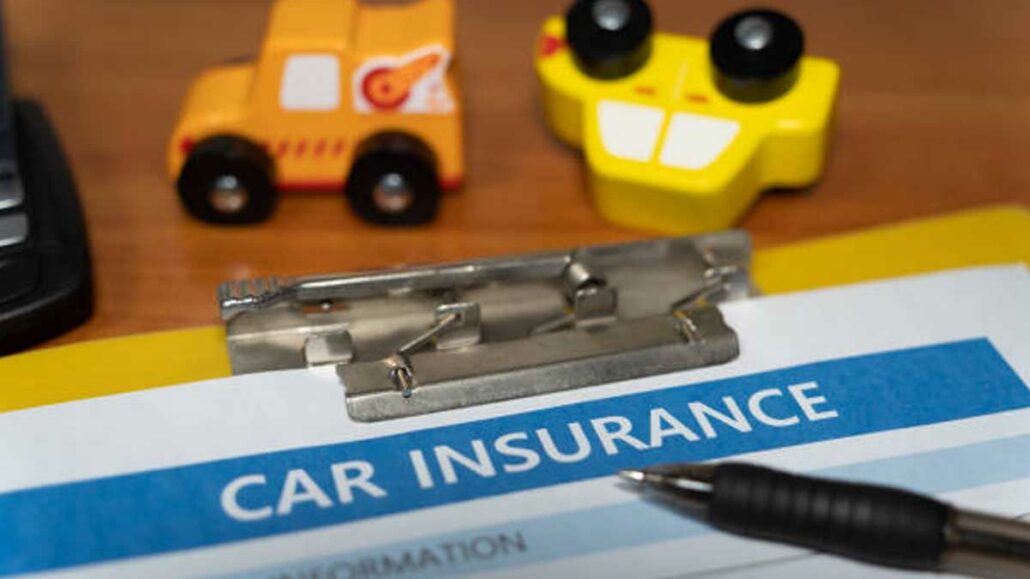The journey to driving independence begins with a learner’s permit. In California, as in most states, this permit allows new drivers to practice behind the wheel under the supervision of a licensed adult. However, a common question arises: Do you need insurance with a learner’s permit in California?

The answer is yes, even with a learner’s permit, you need auto insurance coverage. California law mandates that all drivers, regardless of their license status, must carry at least the minimum required liability insurance. This means that if you’re driving with a learner’s permit and you cause an accident, you’ll be financially responsible for any damages or injuries you may cause.
California’s Learner’s Permit Laws
To obtain a learner’s permit in California, you must be at least 15 ½ years old and complete a state-approved driver’s education course. Once you have the certificate of completion, you can schedule an appointment at the DMV to take the written knowledge test and vision exam. Upon passing both, you will be issued a learner’s permit.
With a learner’s permit, you can start practicing driving under the supervision of a licensed adult who is at least 25 years old. The supervising driver must be in the front passenger seat and have a valid driver’s license. It’s crucial to log supervised driving practice hours as required by California law. This hands-on experience is essential for developing safe driving skills and preparing for the behind-the-wheel driving test.
Both the learner driver and the supervising driver have legal responsibilities. The learner driver must follow all traffic laws and regulations, wear a seatbelt, and avoid distractions like using a cell phone. The supervising driver is responsible for ensuring the learner’s safety and for intervening if necessary. They should also be patient and provide constructive feedback to help the learner improve their driving skills. By adhering to these guidelines, both the learner and the supervising driver can contribute to a safe and positive learning experience.
Insurance Requirements for Learner’s Permit Holders
General Rule
All vehicles operated by a learner’s permit holder in California must be insured. This is a legal requirement to ensure financial protection in case of accidents.
Types of Insurance Coverage
- Liability Insurance: This is the most basic type of insurance and is mandatory in California. It covers damages to property and injuries to others in an accident caused by the insured driver.
- Comprehensive Insurance: This coverage protects your vehicle against non-collision damages, such as theft, vandalism, or natural disasters.
- Collision Insurance: This coverage pays for repairs to your vehicle if it’s damaged in an accident, regardless of who is at fault.
Minimum Insurance Requirements
California has specific minimum liability insurance limits that all drivers, including learner’s permit holders, must meet. As of January 1, 2025, these limits are:
- Bodily Injury Liability: $30,000 per person, $60,000 per accident
- Property Damage Liability: $15,000 per accident
Additional Recommended Coverage
While the minimum liability insurance is required, it’s advisable to consider additional coverage for enhanced protection:
- Uninsured/Underinsured Motorist Coverage: This coverage protects you if you’re involved in an accident with a driver who is uninsured or underinsured.
- Medical Payments Coverage: This coverage helps pay for medical expenses for you and your passengers, regardless of who is at fault.
It’s essential to consult with an insurance agent to understand your specific needs and to ensure you have adequate coverage. By complying with insurance requirements and driving responsibly, learner’s permit holders can protect themselves and others on the road.
How to Ensure Adequate Insurance Coverage
To ensure you have the proper insurance coverage as a learner’s permit holder in California, follow these steps:
1. Consult with an Insurance Agent:
- Explain Your Situation: Clearly communicate your status as a learner’s permit holder and the specific needs of your situation.
- Discuss Your Budget: Be transparent about your budget to help the agent find the most suitable and affordable options.
- Seek Personalized Advice: Rely on the agent’s expertise to get tailored recommendations based on your individual circumstances.
2. Review Your Existing Insurance Policy:
- Check for Learner’s Permit Coverage: Verify if your current policy extends coverage to learner’s permit holders.
- Consider Additional Coverage: If necessary, explore options like adding a rider to your existing policy or purchasing a separate policy specifically for learner’s permit holders.
3. Verify Coverage with the DMV:
- Update Your Information: Ensure your insurance information is accurate and up-to-date with the DMV.
- Avoid Legal Issues: Verifying your coverage can prevent potential legal problems and penalties.
By following these steps, you can protect yourself financially and legally while gaining valuable driving experience.
Frequently Asked Questions (FAQs)
Can I Drive a Rented Car with a Learner’s Permit in California?
No, you cannot rent a car with a learner’s permit in California. Rental car companies typically require a valid driver’s license.
Can I Drive a Friend’s Car with a Learner’s Permit in California?
Yes, you can drive a friend’s car with a learner’s permit in California, but only if you have their permission and if you are supervised by a licensed driver who is at least 25 years old and has had a valid driver’s license for at least five years.
Will Getting a Learner’s Permit Increase My Insurance Rates?
Adding a teen driver to your insurance policy can potentially increase your rates. However, many insurance companies offer discounts for good grades, defensive driving courses, and other safety measures.
What Happens if I Get into an Accident with a Learner’s Permit?
If you’re involved in an accident while driving with a learner’s permit, your insurance policy will typically cover the damages, subject to your policy’s terms and conditions.
When Do I Need to Add Myself to My Parent’s Insurance Policy?
It’s best to inform your insurance provider as soon as you obtain your learner’s permit. This will ensure that you’re covered from the start.

